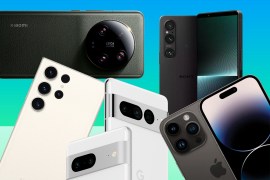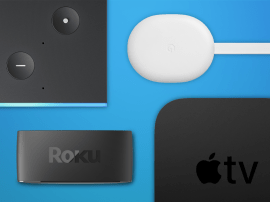Best gaming TVs 2024: TVs for your PlayStation 5 or Xbox Series X
Next-gen-ready rectangles – these are the best gaming TVs to pair with your PS5 or Xbox Series X
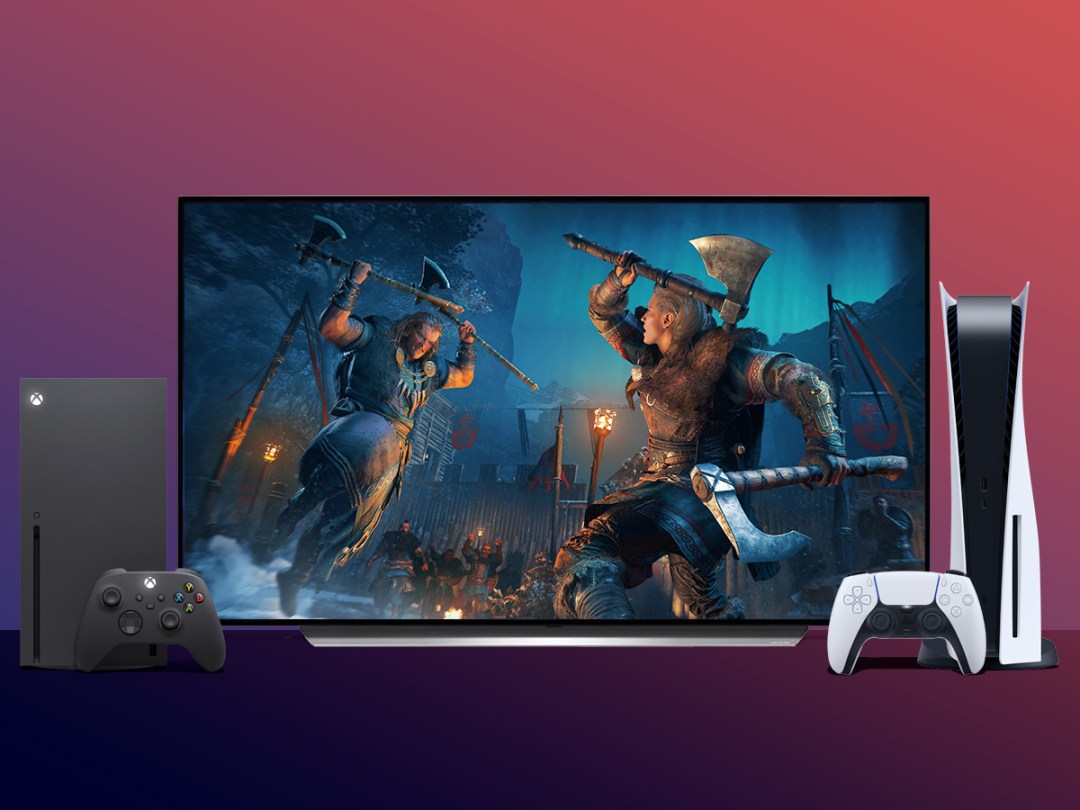
If you’re looking for the best gaming TV, you’re in the right place. After all, a lot of the headline features of both the PlayStation 5 and Xbox Series X consoles rely on some pretty full-on TV technology. And the most exciting features require the TV’s HDMI input(s) to be compliant with at least some of the fabled ‘HDMI 2.1′ specification.
But, of course, nothing in all of technology-land is ever straightforward – and the appearance of HDMI 2.1 on a particular TV doesn’t automatically mean the TV is capable of supporting console-specific features. So here’s where we round up some of the best gaming TVs you can currently buy, before quickly recapping the most significant TV-related next-gen console features. You’ll be blasting enemies and lapping rivals in gloriously smooth framerates before you know it.
What are the best gaming TVs?
We think the LG C3 OLED TV (buy now) is the best gaming TV for most people. It offers a premium experience thanks to its inky blacks and gorgeous colours, while offering a 120Hz refresh rate, along with VRR, G-Sync, and Freesync compatibility for smooth framerates. Crucially, it’s also available in smaller 42in and 48in sizes, making it a perfect, compact choice if your main telly is being utilised for non-gaming purposes.
Other Gaming TV recommendations
The Sony Bravia XR-55A80 (buy now) is perfect when paired with the PS5. It’ll deliver top-notch OLED performance, with the additional benefit of Google TV (and all the useful apps that come with it).
The TCL 55C845K (buy now) offers superb performance for comfortably under a grand. Key specs include a 4K 144Hz screen, Dolby Atmos, and a 2.1 Onkyo Sound system.
The LG G3 (buy now) offers one of the best OLED gaming experiences around, thanks to a super-bright panel and incredible contrast.
The Samsung S95C(buy now) serves up a gorgeous, slim build, with an equally impressive 144Hz refresh rate to match.
The best Gaming TVs you can buy today:
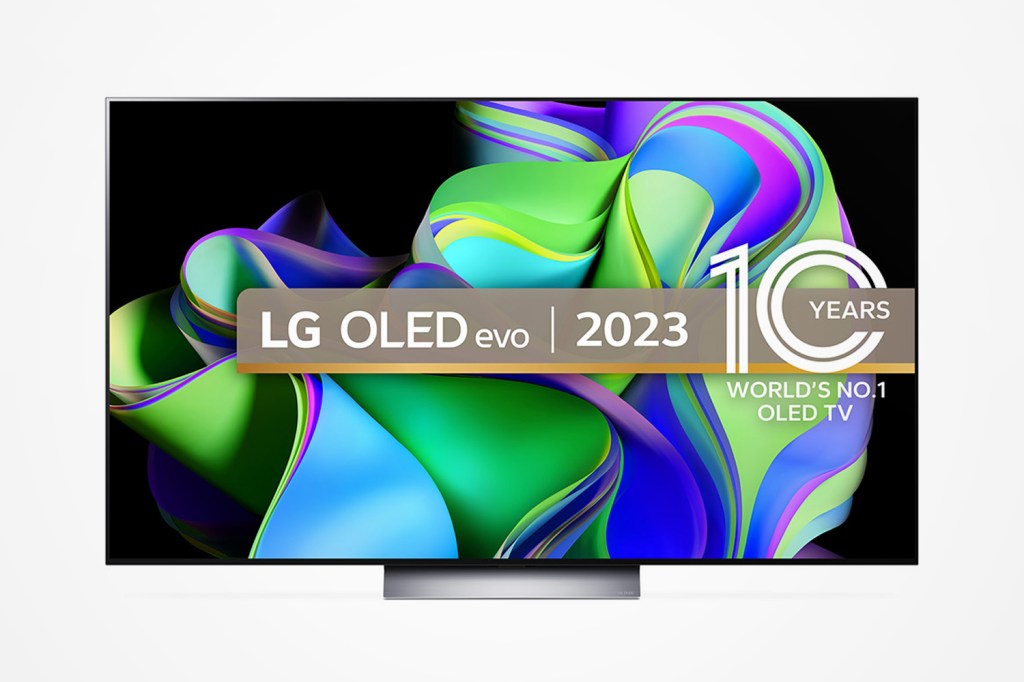
1. LG C3
Stuff Verdict
Add the C3 to the long list of brilliantly accomplished OLED TVs LG has delivered over the last decade
Pros
- Brilliant all-around picture quality
- Great for gaming
- Upgraded webOS interface
Cons
- Sound is underwhelming
- Not particularly affordable
- Feels wobbly during installation
| Screen size | 42, 48, 55, 65 (version tested), 77, 83in |
| Resolution | 3840×2160 |
| HDR | Dolby Vision, HDR10, HLG |
| Inputs | 4x HDMI 2.1, 3x USB, 2x RF, Digital optical, Ethernet, Wi-Fi, Bluetooth |
| Smart TV OS | WebOS 2.3 |
| Weight | 16.6 (with stand) 14.1kg (panel only) |
| Dimensions | 1222x757x230mm (with stand) 1222x703x45mm (panel only) |
The LG C3 is a great option for those seeking a top-tier experience at a manageable screen size. And while a 42in screen might seem small, for many gamers, this is the perfect desktop experience, especially if it’s pulling double duty as a PC monitor. You don’t often find high-quality TVs at this size, so its importance can’t be overstated. Stature aside, there’s plenty for gamers to love, including blazing-fast 120Hz refresh rate for buttery smooth visuals, with minimal input lag. The OLED panel isn’t the brightest around (that’s a feature reserved for its pricier G3 sibling), but it still offers exceptional picture quality, with deep blacks, vibrant colors, and excellent contrast. Easily one of the best compact gaming TV choices, period.
- Read more: LG C3 review
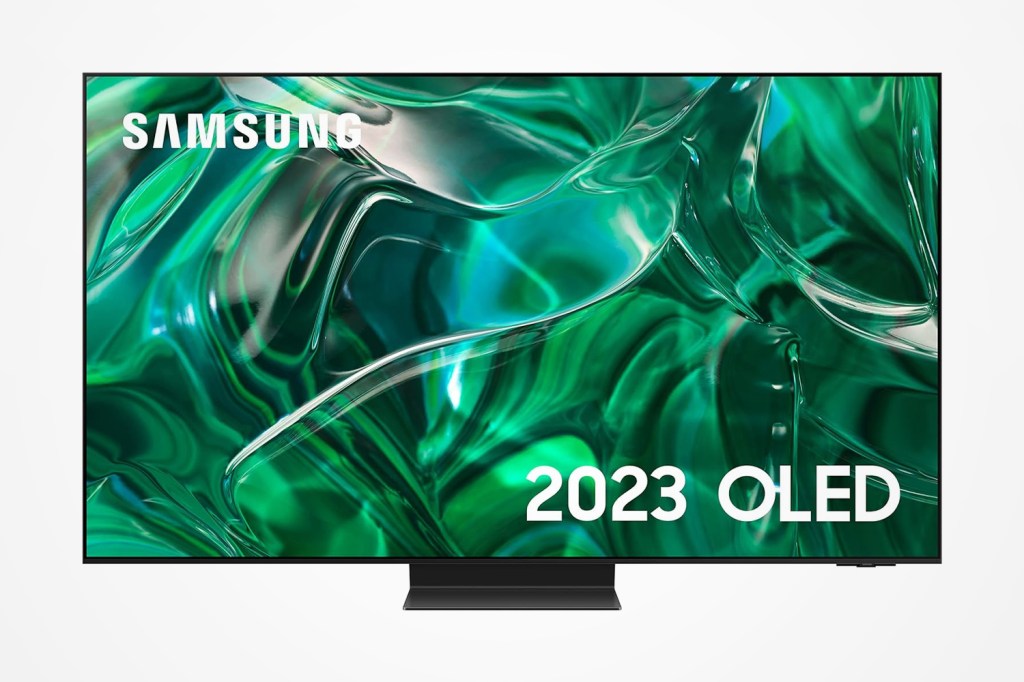
2. Samsung S95C
| Screen size | 55, 65, 77in |
| Resolution | 3840×2160 |
| HDR | HDR10, HDR10+, HLG |
| Inputs | 4 x HDMI 2.1, 2 x USBI 2.1, 3x USB, 2x RF, Digital optical, Ethernet, Wi-Fi, Bluetooth |
| Smart TV OS | Tizen |
| Weight | 55in: 18.3 kg, 65in: 28 kg, 77in: 45.1 kg |
| Dimensions | 55in: 122.2 x 72.1 x 3 cm, 65in: 145.1 x 86.1 x 3 cm, 77in: 173.1 x 100.1 x 3.8 cm |
The S95C’s OLED panel doesn’t disappoint on contrast. Or colours. Or much of anything, really. Blacks are deep, bringing the thrill of horror games to life, while colours explode with a vibrancy that makes on-screen shenanigans more immersive than ever. And while it doesn’t reach the peak brightness of, say, the LG G3, it does offer up to 144Hz refresh rates, which is a figure that spec fiends will find hard to ignore. Input lag is minimal too, while the overall design is sleek, thin, and minimal — perfect for a living room gaming setup that won’t entirely dominate the wall and/or media cabinet.
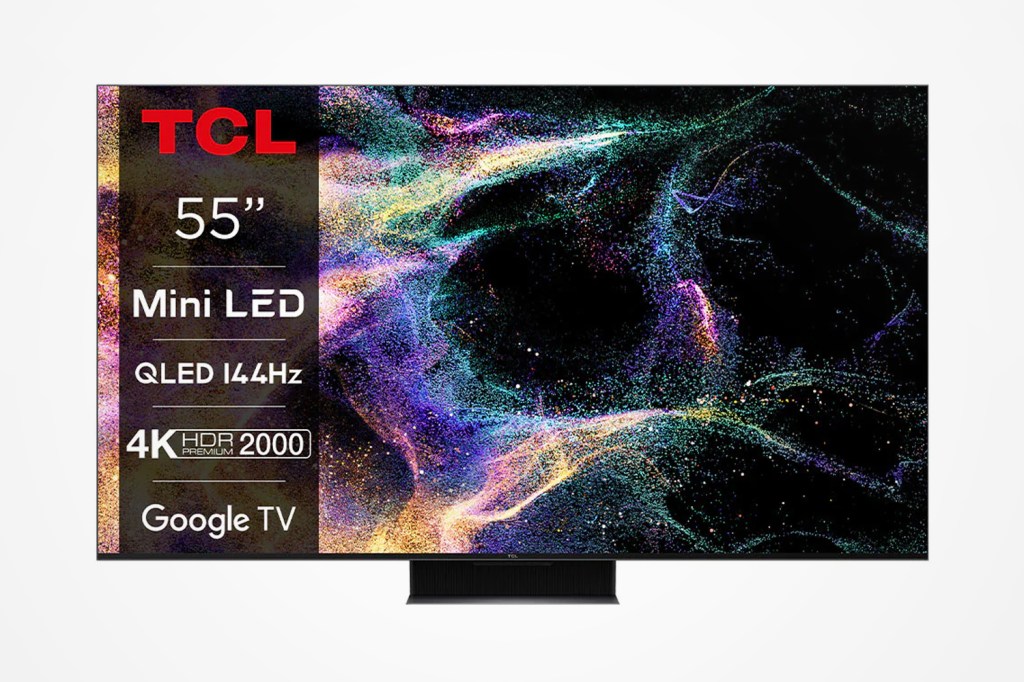
3. TCL 55C845K
| Screen size | 55in |
| Resolution | 3840×2160 |
| HDR | HDR10+, Dolby Vision |
| Inputs | 4 x HDMI 2.1, 2 x USBMI 2.1, 2 x USBI 2.1, 3x USB, 2x RF, Digital optical, Ethernet, Wi-Fi, Bluetooth |
| Smart TV OS | Google TV |
| Weight | 22.7 kg |
| Dimensions | 139.7 x 79.4 x 28 cm |
Matching Sony’s attempt at the unsexiest TV naming convention ever, there’s plenty to enjoy about TCL’s entry. Despite being one of the TVs on our list, it’s providing a full 4K, 144Hz experience, and those extra frame rates will appeal to those looking for every advantage they can get — particularly in frantic shooters. Four HDMI 2.1 ports make for a respectable amount too, with each one capable of supporting next-gen consoles at 4K 120Hz. Running Google TV, you’ll have access to a whole host of extra apps too. In short, it offers great bang for your buck — and while its Mini-LED panel can’t match the true blacks and eye-popping colours of its OLED rivals, it’ll still make your game collection sing — especially on a panel this size.
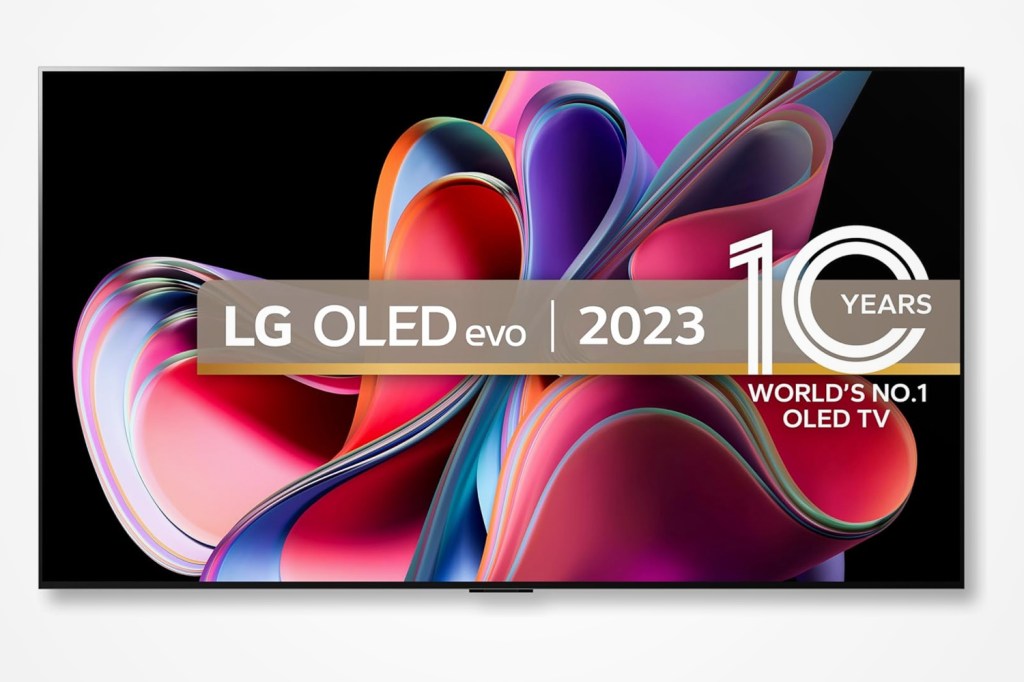
4. LG G3
| Screen size | 55, 65, 77in |
| Resolution | 3840×2160 |
| HDR | Dolby Vision, HDR10, HLG10+, Dolby Vision |
| Inputs | 4 x HDMI 2.1, 3 x USB, Digital optical, Ethernet, Wi-Fi, Bluetooth |
| Smart TV OS | webOS |
| Weight | 17.8, 28.3, 43.6kg |
| Dimensions | 124.2 x 72.6 x 3.6cm, 145.6 x 83.7 x 4.6cm, 172.8 x 96.6 x 4.8cm |
The G3 is one of the best OLED TVs you can currently buy, let alone one of the best gaming TVs around. If you can get past its 120Hz refresh rate (which is bested by some 144Hz rivals), then you’ll find very little else to complain about. Its super-thin build makes it a wall-mounted masterpiece, and its Micro Lens Array tech makes it one of the brightest OLED TVs ever made. Considering that brightness is one of OLED’s greatest weaknesses, this is, to put it mildly, a very big deal.
Pictures at 4K look utterly stunning, and even brighter rooms won’t be able to mute its performance. HDMI 2.1 ports are present and accounted for, as are key features like VRR and a Game Optimiser mode. In short, you will not be disappointed.
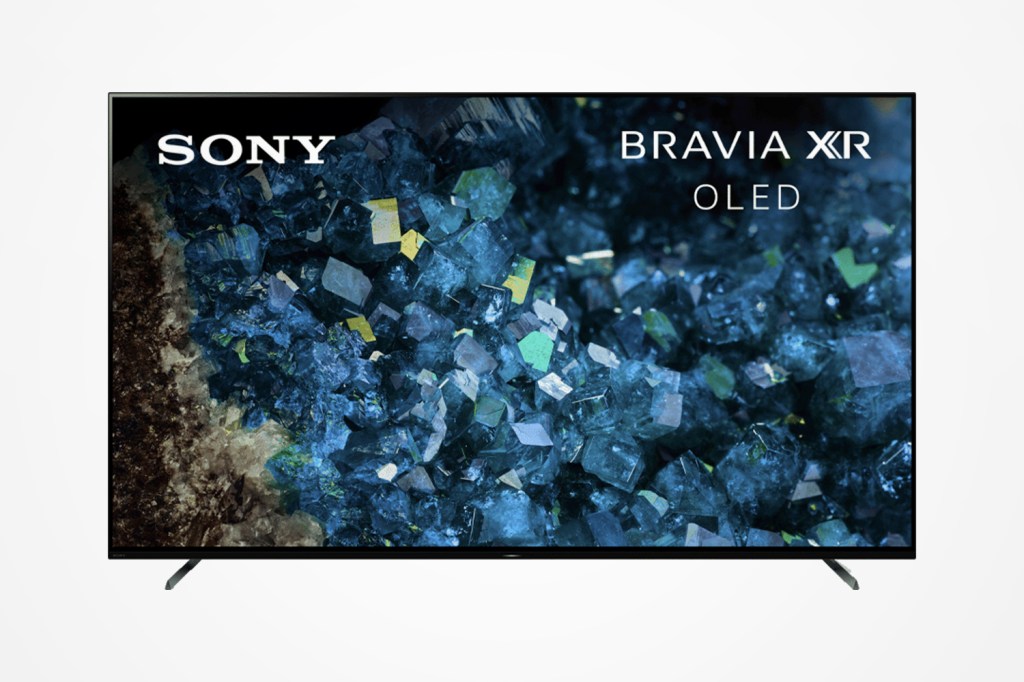
5. Sony XR-55A80L
Stuff Verdict
Sometimes ‘the current thing done really well’ is just as good as ‘the brand-new thing’. This is one of those times, making it the best TV for PS5 owners.
Pros
- Excellent across-the-board picture quality
- Good gaming support
- Fine ergonomics and smart interface
Cons
- Just two HDMI 2.1 sockets
- Not the most wall-hangable design
- Thin and pointy sound
| Screen size | 55 (version tested), 65, 77, 83in |
| Resolution | 3840×2160 |
| HDR | HDR10, HLG, Dolby Vision |
| Inputs | 2x HDMI 2.1, 2x HDMI 2.0, digital audio out, 2x USB, Ethernet, Wi-Fi, Bluetooth |
| Smart TV OS | Google TV |
| Weight | 1227x712x53mm (without stand) 1227x738x327mm (with stand) |
| Dimensions | 17.9kg (without stand) 18.8kg (with stand) |
PlayStation 5 owners take note — Sony’s convolutedly-named TV is the best TV for the PS5, thanks to its ability to automatically switch into Game Mode, automatically setting the HDR tone mapping settings on the PS5 to specifically match the TV. Sure, it’s something you could manually calibrate on another set, but it’s a nice feature to have nonetheless. Elsewhere, you’re looking at a beautiful OLED panel with a 120Hz refresh rate, a pair of those all-important HDMI 2.1 ports for the best console gaming experience, and an Auto Low Latency Mode for a smoother controller experience. Throw in Google TV and its world of extra apps, and it’s a no-brainer for Sony and PlayStation fans in general.
- Read more: Sony XR-55A80L review

Stuff Verdict
Did anyone really not see the headline ‘Another Great Philips OLED TV’ coming?
Pros
- Ambilight is its usual delight
- Bright, detailed and beautifully balanced images
- Half-decent audio system
Cons
- No Freeview Play
- Only two 4K@120Hz HDMI inputs
- Remote control could use some backlighting
6. Philips OLED808
| Screen size | 42, 48, 55, 65, 77in |
| Resolution | 3840×2160 |
| HDR | HDR10, HDR10+, HLG, Dolby Vision |
| Inputs | 4 x HDMI 2.1, 1 x Optical, Ethernet, Wi-Fi, Bluetooth |
| Smart TV OS | Google TV |
| Weight | 14.1kg, 15.4kg, 18.9kg, 28.3kg |
| Dimensions | 94.4 x 54.3 x 25.6cm, 108 x 62.2 x 25.6cm, 124.2 x 71 x 6.8cm, 145.6 x 83.7 x 6.8cm |
Another Google TV-toting contender, Philips’ OLED set stands out from most, thanks to its generous array of size options ranging from manageable to gargantuan. Naturally, being a Philips set, you’ve got the huge benefit of built-in Ambilight, which can take your gaming experience to a whole new level of immersion. Failing that, there’s also the sound — AI Sound is a feature that promises to intelligently adjust its audio settings to match the content, to help make those explosions richer and bassier. A 120Hz refresh rate and HDMI 2.1 ports tick the boxes, and while the design isn’t the most exciting one we’ve seen, it’s all about that gorgeous OLED on-screen action.
- Read more: Philips OLED808 review
How to choose the best Gaming TV
When buying running headphones, there are several key factors to consider that can enhance your running experience and ensure you choose a pair that suits your needs.
There are a few different features that you’ll need to look out for when choosing the best gaming TV. We’ve summarised them handily below:
- Auto Low Latency Mode (ALLM) is one of the more straightforward features – so straightforward, in fact, it features on 2017’s Xbox One X. Now, though, this feature – which instructs a TV to automatically switch to its ‘Game’ mode in order to keep the time between controller presses and the action occurring on-screen to a minimum – is supported by many more TVs than it was back in 2017.
- VRR (Variable Refresh Rate) has also been a console feature for a few years, but it’s only now becoming something televisions can implement. VRR varies the screen’s refresh rate to suit a game’s frame rate so they’re always synchronised – so games look smoother. Dynamic HDR and eARC are slightly more mainstream propositions, on the basis that they already have applications beyond gaming.
- Dynamic HDR (which in TV-land is often described as either HDR10+ or Dolby Vision) optimises the high dynamic range potential of images on a frame-by-frame basis – so they’re as bright and colourful as possible at all times. Enhanced Audio Return Channel, meanwhile, is an upgrade on the ARC method of transferring audio from a TV to a soundbar, multichannel amplifier or what-have-you using an HDMI cable. eARC has greater bandwidth than ARC, and is capable of carrying up to 32 channels of audio – so should be able to handle object-based audio formats like Dolby Atmos without problems.
- HDMI 2.1 also needs a mention. The most spectacular aspect of HDMI 2.1, is its theoretical ability to handle 4K video resolution at 120Hz. The advantages of putting 120 frames per second on the screen are obvious: smoother action and greater detail. But even consoles as powerful as the PS5 and Xbox Series X may have to drop resolution from 4K down to 1080p (or even lower) if they’re going to put 120 frames per second up there – and the TVs that can handle this torrent of information are still few and far between.
Ultimately, there are quite a few TVs out there that are ready to do their utmost to maximise your gaming experience – and these are among the very best. Just don’t forget your HDMI 2.1 connecting cable, will you?
How we test the best Gaming TVs
We’ve reviewed dozens of gaming TVs over the years, so you can trust our recommendation when it comes to deciding which set to buy.
We usually spend a week or longer reviewing TVs, testing out the picture and sound quality, alons with features and connectivity.
Once we’ve experienced every aspect of the TV, we’ll compare them with rivals, give them a star rating, and add them to this buying guide (if they deserve a place).
For more information on Stuff’s rating and review process, read our page on how we test products.


